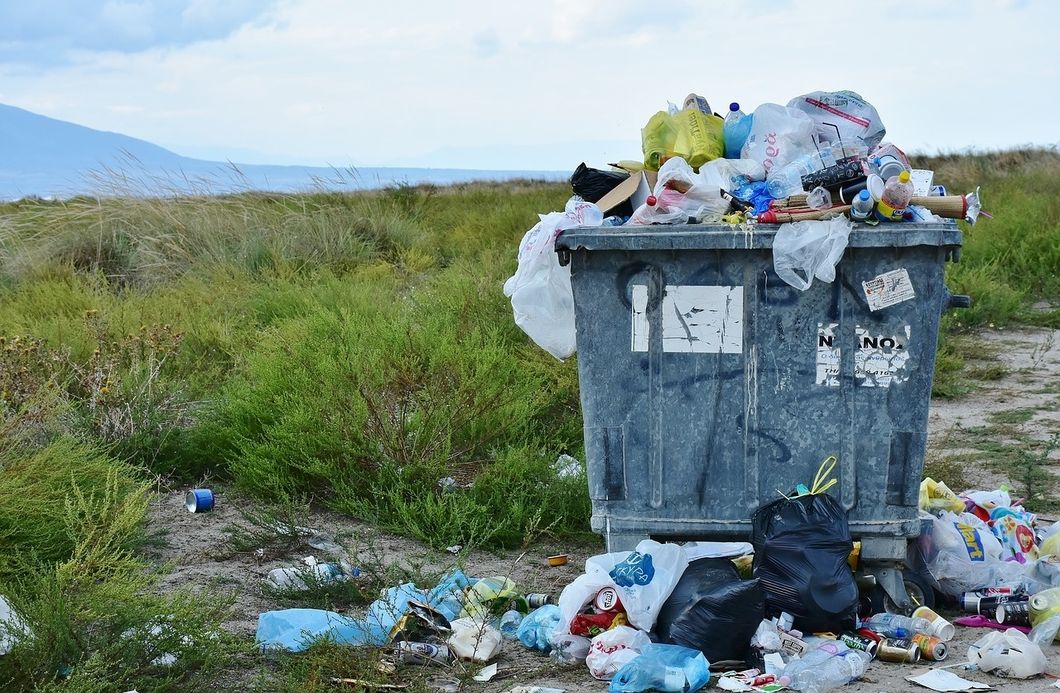Earlier this month, the world's leading climate scientists authored and released a report on the status of our climate through the UN Intergovernmental Panel on Climate Change (IPCC) – and it does not look good. At all. They warned that the world only has about a dozen years left for global warming to be controlled before catastrophic disasters wreak havoc on our environment. Even a half of a degree raise will significantly worsen the risks of drought, floods, extreme heat, and poverty for hundreds of millions of people.
With that in mind, it's clear that we now live at a turning point or a line in the sand. It's clear that the entire world needs to come together with the urgent, unprecedented changes required to preserve our environment and life as we know it.
An easy way to do your part in reducing your carbon footprint is to reduce the amount of plastic in your life. It sounds weird, right? What does plastic have to do with climate change? Well, according to new research, a whole lot. A new study found that plastics emit powerful greenhouse gases as they degrade. Specific types of plastic, like low-density polyethylene, have weak chemical structures and break down easily, releasing gases at the highest rate (fun fact: this type of plastic is also the most prevalent discarded plastic in the ocean). The more surface area a piece of plastic has, the more gas is given off...and surface area only grows and grows as plastic breaks down.
There's only one way to reduce the amount of plastic that sits in our landfills, forests, and oceans: stop using it. Or, more realistically, reduce your consumption. Here are some simple ways to do your part in keeping plastic from emitting harmful gases into our atmosphere:
1. Stop using plastic straws, especially in restaurants.
Invest in reusable stainless steel or glass straws instead. They look trendier, anyway.
2. Use a reusable bottle or mug for beverages.
Investing in a nice, reusable bottle or mug for your drinks is another win-win for you and the environment: it reduces the amount of plastic thrown away, and (depending on the bottle) your drink will stay cold or warm for way longer! Yay!
3. Don't use the mass-produced plastic bags provided at grocery stores – opt for a cloth or recyclable paper one instead.
A single plastic bag can take up to 1,000 years to fully degrade. Reusable or recyclable grocery bags are usually sturdier than plastic ones and won't decompose and emit harmful gases into our environment for 1,000 years.
4. Buy groceries in bulk.
Bulk food items typically have less packaging waste than regularly sized items. Buying in bulk reduces the amount of plastic waste you throw away, and you won't have to go grocery shopping as often.
5. Don't use plasticware at home.
Who really needs those red plastic Solo cups, anyway? Simply using real tableware for your meals or parties ensures you won't be dumping heaps of plastic waste away after eating.
6. Drink tap water instead of bottled water.
About $100 billion is spent each year on plastic water bottles. Instead of helping that industry grow, take advantage of your tap water – as long as it's safe to drink! Or, buy a water filter just in case.
7. Recycle responsibly.
Only a fraction of plastic thrown into recycling bins actually gets recycled, mostly due to humans not disposing of it correctly. Plastic containers that held food/drink need to be rinsed out, or else they might contaminate other plastic and end up in a landfill. And not every type of plastic is recyclable, so look out for a tiny "recycle" graphic on your plastic before you toss it.
8. Use glass or other reusable storage.
So much of our storage containers – particularly food containers – are made up of plastic. Opt for sturdier, reusable storage instead, like glass.
9. Buy detergent or other cleaning tools that come in cardboard containers.
Detergent and many other types of cleaning agents come in cardboard, which is recyclable and easier on our environment than plastic.
10. Use matches instead of plastic-encased lighters.
Let's be real: we don't even throw away most of our lighters – we lose them instead, meaning that there are probably millions of them just sitting around wherever you last dropped one. Matches aren't as harmful in decomposition as the plastic in lighters.
These are just a few of the most simple, low-effort ways to reduce your personal plastic consumption, but there are literally thousands of ideas available online that provide alternatives for pretty much any form of plastic you use every day.
Make sure to encourage your friends to ditch the straws when you go out for a drink, or let them use your reusable bags when you go grocery shopping. Every little bit counts in this dire effort to preserve our environment. It's not just about our oceans, landfills, or climate after all – it's about the world we live in.

















